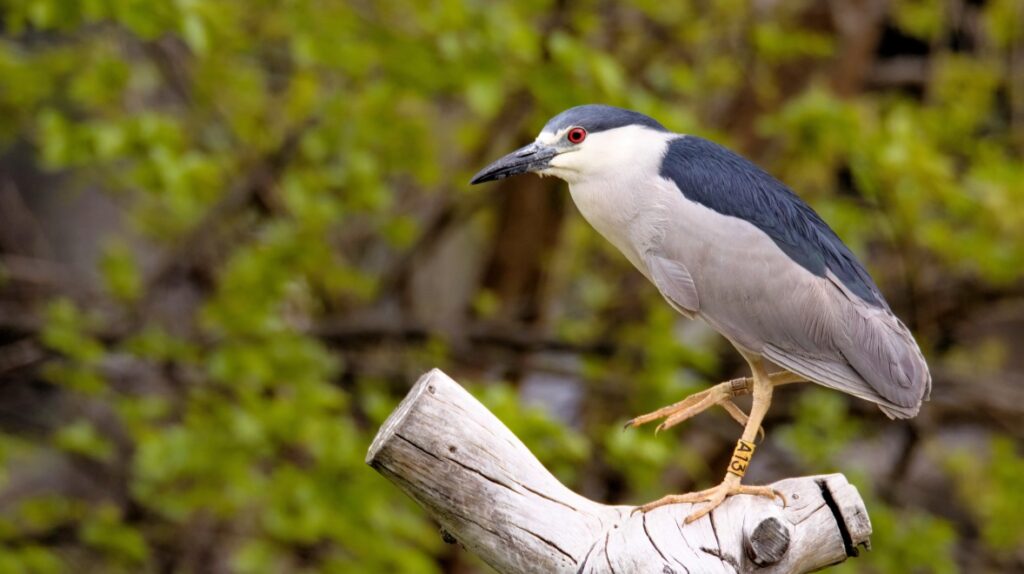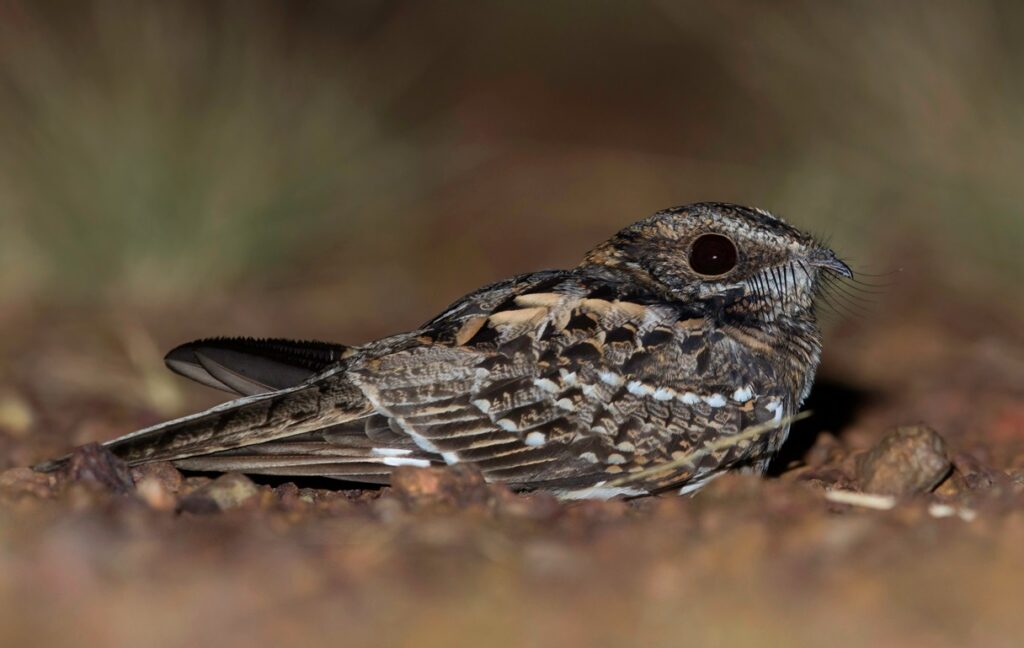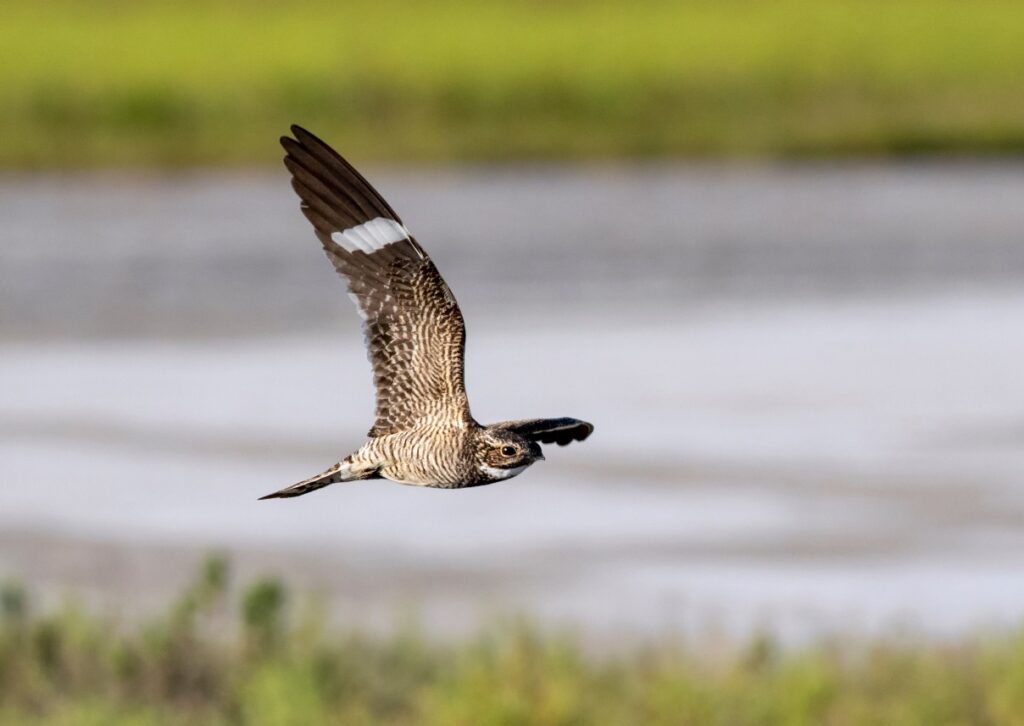If you’ve recently heard some birds singing at night or even seen a few flying around the house in the dark, you’re probably wondering whether this is normal behavior.
Well, some birds do fly at night, but the reason behind this behavior depends on whether they are nocturnal or diurnal. For some birds, flying at night is a routine; for others, it’s a means of escaping predators or migrating.
Read on to discover more on the topic and check out some bird species you might spot flying at night!
Do Birds Fly At Night?
Birds do flight at night, although the purpose of flying is defined by their overall behavior. Are they nocturnal or diurnal? That’s the main thing that influences a bird’s flying schedule.
Nocturnal birds fly at night regularly to hunt and forage, while diurnal birds, like hawks or eagles, are seen flying after sunset only when they feel threatened or while migrating.
While nocturnal birds are adapted to moving around during the night, those active in daylight usually have poor low-light vision, making night-time activity dangerous for them.

Nocturnal Birds That Fly At Night
Nocturnal birds sleep during the day and are most active at night when they’re spotted flying as well, besides engaging in other activities. They may be spotted after sunset or in the early morning too, although this behavior is classified as crepuscular, not nocturnal.
Flying at night is normal behavior during the winter as well, not only during the summer. Naturally, the flying schedule might change if the birds migrate (depending on the species), but they’ll stick to their nocturnal schedule once they reach their wintering grounds.
These birds have excellent eyesight, which is adapted to seeing in low light. Besides, their plumage color usually provides them with excellent camouflage, which they depend on during the day to stay hidden.

Here are some nocturnal birds you might spot flying around at night:
- Night herons – night herons hunt primarily at night, and they’re most often seen standing still at the water’s edge waiting for prey; when they spot frogs, insects, crustaceans, fish, or mammals they can prey upon, night herons rely on their excellent ambushing technique; during the day, night herons hide in bushes or trees.
- Owls – most owls are nocturnal (e.g. great horned owl, barred owl), although some are crepuscular (active at dawn and dusk), and only a few owls are diurnal;
- Nightjars – they’re sometimes called goatsuckers or bugeaters; nightjars are either nocturnal or crepuscular, and their plumage colors help them remain hidden during the day.
- Nighthawks – they are primarily active at night or in the early morning or late evening; that’s when they hunt for moths or other large insects; during the day, nighthawks rely on their plumage to camouflage and remain hidden.
Diurnal Birds That Fly At Night
We already know that some diurnal birds fly at night because they’re either threatened or migrating – this can happen during winter, as well.
Pigeons, for instance, are often spotted flying at night from one place to another because they’re disturbed. However, they aren’t a nocturnal species and prefer not moving during the night.
First and foremost, did you know that birds sleep with half of their brains active? That’s how they’re able to sense potential threats even while sleeping and how they can wake up instantly if they sense predators around.
As such, it’s not unusual to spot a diurnal bird flying around after sunset.
As for night migration – some diurnal birds prefer migrating at night when winter is coming. They land in the morning, spend a few days resting and feeding, then resume their night migration.
These species rely on nocturnal migratory behavior because it minimizes predation. Moreover, they can feed during the day and avoid overheating.
Here are some birds that migrate at night:
- Sparrows
- Thrushes
- Warblers
- Tanagers
- Buntings
- Grosbeaks
- Hummingbirds
- Geese
Do Birds Move Around At Night?
Besides flying, nocturnal birds do a lot of things during the night! After all, that’s their normal behavior, just like it’s normal for us to be active during the day.
They hunt, feed their young, and perform courtship rituals, to name a few activities. On the other hand, these birds must be much more careful than diurnal species because predators can easily hear them in the silence of the night.
As such, nocturnal birds rarely sing because their deeply rooted instincts tell them singing isn’t safe. So if you hear a bird singing at night, it’s highly likely a diurnal species that might’ve been woken up by a threat.

Do Birds Fly Into Windows At Night?
Birds might fly into windows at night if there’s light behind them. They may be attracted by the light and “miss” the fact that there’s a window between them and the light source. They aren’t able to perceive what windows are and often get severe injuries after flying into one.
Birds might fly into windows during the day as well because they see the sky’s reflection in them and do not understand it is not, in fact, a real sky that can serve as a flying ground.
Do Parrots Fly At Night?
Our world is home to only two nocturnal parrot species: New Zealand’s Kakapo and Australia’s night parrot.
The thing is, there’s little chance you’ll ever see one flying at night. The kakapo is flightless, while the night parrot is extremely rare, being listed as Critically Endangered on the IUCN Red List. Scientists believe this is associated with their poor eyesight.
The night parrot is, in fact, considered one of the world’s most mysterious birds, as specialists still aren’t sure how they survive at night and why their eyesight hasn’t adapted to their nocturnal lifestyle.
The lack of evidence is caused primarily by the fact that these birds are extremely rare, and it’s almost impossible to study their physiology.
